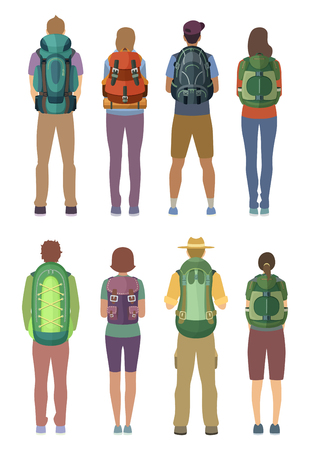Understanding the Role of Binoculars in UK Hiking
When venturing into the diverse landscapes of the United Kingdom, a reliable pair of binoculars becomes an indispensable tool for hikers. The British countryside, with its rolling hills, dense woodlands, rugged coastlines, and expansive moorlands, offers an ever-changing tapestry that rewards those who can observe it closely. Binoculars allow hikers to spot distant wildlife—such as red deer in the Scottish Highlands or rare birds along the Norfolk Broads—without disturbing their natural behaviour. Beyond wildlife observation, binoculars are equally valuable for navigation; they help you identify landmarks and assess terrain from afar, which is particularly useful when traversing areas like the Lake District or Peak District where trails may be less defined. In short, whether you are tracking a herd of wild ponies on Dartmoor or planning your route across the Yorkshire Dales, binoculars enhance both safety and enjoyment by providing a clearer view of your surroundings.
Key Features to Consider for British Conditions
When selecting binoculars for hiking across the UK, it is essential to consider several key features that are particularly relevant to local conditions. The UKs famously changeable weather and a variety of landscapes—from windswept moors and dense woodlands to rugged coastlines—demand equipment that is both robust and versatile. Below, we detail the primary features every British hiker should assess before making a purchase.
Weather-Resistance
The British weather is notoriously unpredictable, with sudden showers, persistent drizzle, and even fog rolling in unexpectedly. Therefore, binoculars should offer reliable weather-resistance. Look for models that are waterproof (ideally rated IPX7 or above) and nitrogen-purged to prevent internal fogging. Rubber armouring also provides additional grip and protection against knocks during wet conditions.
Magnification and Objective Lens Diameter
Choosing the right magnification is crucial for UK hikers who may use binoculars in diverse settings. Higher magnification (e.g., 10x) provides detailed views but can be more challenging to stabilise without a tripod—especially during blustery hill walks. Lower magnifications (e.g., 8x) offer a wider field of view and are easier to manage by hand, making them preferable for spotting wildlife or navigating varied terrain.
| Feature | Recommendation for UK Hikers |
|---|---|
| Magnification | 8x–10x |
| Objective Lens Diameter | 32mm–42mm (balance between brightness and weight) |
| Waterproofing | Minimum IPX7 rating |
| Fog-proofing | Nitrogen- or argon-filled barrels |
| Weight | Under 800g for extended comfort |
| Field of View | Wide FOV (120m+ at 1000m) |
Weight and Portability
Avoid excess bulk on long treks by opting for lightweight models. Binoculars weighing under 800 grams strike an ideal balance between durability and ease of carrying, particularly when tackling steep gradients or covering many miles in a day. Compact designs with ergonomic straps or cases further enhance portability.
Additional Essential Features
Certain features enhance usability in Britains unique environments. A wide field of view is valuable for scanning open landscapes or tracking fast-moving birds across hedgerows. Long eye relief is important for glasses-wearers, ensuring comfort over extended periods. Lastly, look for adjustable eyecups and smooth focus mechanisms to cope with rapid shifts in weather and light conditions.
Summary Table: Essential Binocular Features for UK Hikers
| Feature Category | Why It Matters in the UK |
|---|---|
| Weather Resistance | Copes with rain, mist, and sudden weather changes common in Britain. |
| Magnification & Field of View | Suits mixed terrain and wildlife observation; balances detail with stability. |
| Weight & Ergonomics | Keeps gear manageable on long or challenging routes. |
| User Comfort Features | Cater to glasses-wearers and changing light conditions on the trail. |
Selecting binoculars with these features ensures you stay prepared for whatever the British countryside throws your way—be it rain, wind, or simply the thrill of spotting wildlife across varying landscapes.

3. Recommended Binocular Types and Models for Hikers
Choosing the right binoculars is crucial for UK hikers, as our diverse landscapes—from rugged uplands to sweeping coastlines—demand optical gear that balances portability, durability, and performance. Below, we outline popular binocular types and respected brands available in the UK, with tailored recommendations to suit day walks, multi-day hikes, or coastal rambles.
Compact Binoculars: Lightweight Essentials for Day Walks
For day walkers traversing the Lake District fells or South Downs trails, compact binoculars are ideal. Their reduced weight (often under 400g) and slim profile make them easy to stow in a jacket pocket or rucksack side pouch. Consider models such as the Opticron Traveller BGA ED 8×32 or the Nikon Prostaff 7S 8×30, both well-regarded for their clarity and robust British-weatherproofing.
Mid-Size Binoculars: Versatility for Multi-Day Hikes
On longer expeditions—think Pennine Way or West Highland Way—a balance between magnification and field of view is essential. Mid-size binoculars (typically 8×32 or 8×42) offer brighter images during dusk or overcast conditions. The RSPB HD 8×42, developed in partnership with birding experts, is a dependable choice. Alternatively, Swarovski CL Companion 8×30 binoculars deliver premium optics and ruggedness for demanding terrain.
Waterproof & Fogproof Models: Reliability on Coastal Rambles
The unpredictable British coast—with its salt spray, wind, and changeable weather—calls for waterproof and fogproof binoculars. Look for nitrogen-purged models like the Vortex Diamondback HD 8×42, which features a non-slip grip perfect for cliff-top viewing along the Jurassic Coast. For budget-conscious ramblers, the Bushnell H2O 8×42 offers reliable waterproof performance without breaking the bank.
Trusted Brands Available in the UK
The UK market is well-served by established brands such as Opticron (a British company), Nikon, Zeiss, Swarovski, Vortex, RSPB, and Bushnell. When purchasing locally, look for reputable outdoor retailers who provide hands-on advice and aftercare—crucial if you’re investing in higher-end optics.
Key Considerations Before You Buy
Before settling on a pair of binoculars, test them in-store where possible. Check comfort in hand and against your eyes; ensure they fit your pack setup; and verify warranty terms—especially important given the rigours of British hiking conditions.
Selecting binoculars from these trusted types and brands will enhance your hiking experience across the UKs varied terrains, ensuring you never miss a distant ridge or soaring kestrel on your next adventure.
4. Using Binoculars Responsibly and Effectively
When exploring the diverse landscapes of the UK, from the Lake District to the South Downs, binoculars can greatly enhance your hiking experience. However, its essential to use them responsibly and effectively, ensuring that both wildlife and fellow countryside users are respected. Below, youll find practical advice on best practices for wildlife observation, countryside etiquette, and safety considerations tailored to UK hikers.
Respectful Wildlife Observation
- Keep Your Distance: Use your binoculars to observe animals without approaching or disturbing them. This is especially important during nesting or breeding seasons.
- Minimise Noise: Move quietly when using binoculars; loud noises can startle wildlife and disrupt natural behaviours.
- Avoid Sudden Movements: Sudden gestures may alarm animals. Take your time to observe calmly and remain as unobtrusive as possible.
Countryside Etiquette
The UK countryside operates under a set of widely respected conventions. Following these ensures everyone enjoys their time outdoors:
| Best Practice | Description |
|---|---|
| Stick to Paths | Remain on marked trails to protect fragile habitats and avoid trespassing. |
| Close Gates Behind You | This prevents livestock from straying and maintains landowner trust. |
| Avoid Blocking Paths | Be mindful not to obstruct narrow trails while using binoculars. Step aside for others where necessary. |
| Be Discreet | If observing near private property or farms, respect privacy and avoid pointing binoculars towards homes or gardens. |
Safety Considerations When Using Binoculars
- Stay Aware of Your Surroundings: It’s easy to become absorbed when viewing distant objects; always be conscious of where you’re standing, particularly near cliffs or uneven ground.
- Take Regular Breaks: Prolonged use can cause eye strain or dizziness. Pause periodically to allow your eyes to readjust.
- Weather Awareness: In the UK, weather can change rapidly. Keep an eye on conditions and store binoculars safely if rain threatens.
Summary Table: Responsible Binocular Use
| Do | Dont |
|---|---|
| Observe from a distance | Trespass onto private land |
| Follow marked trails | Disturb wildlife or habitats |
| Remain aware of surroundings | Obstruct paths or gates |
Final Thoughts
Using binoculars responsibly is not only about getting the best view but also about contributing positively to the shared outdoor experience in the UK. By observing wildlife respectfully, following countryside etiquette, and prioritising safety at all times, you ensure your hiking adventures remain enjoyable for everyone involved.
5. Care and Maintenance in the Field
When hiking across the varied and often unpredictable British countryside, your binoculars are likely to face damp conditions, persistent drizzle, and muddy terrain. Ensuring their longevity and optimal performance requires practical care both during and after your walks.
Protecting Your Binoculars on the Trail
Always carry your binoculars in a robust, waterproof case when not in use. Many UK hikers opt for neck straps or harnesses that keep optics secure yet easily accessible, preventing accidental drops or knocks against rocky paths or stiles. In rainy weather, use lens caps and consider a rain guard to shield the lenses from moisture and grit. If you need to set them down briefly, place them on a dry jacket or inside your rucksack rather than directly on the ground.
Cleaning Off Mud and Moisture
Muddy boots aren’t the only gear that needs cleaning at day’s end. If your binoculars pick up mud or water splashes, avoid wiping with clothing, which may scratch the lenses. Instead, gently brush off debris with a soft lens brush or air blower. For stubborn marks, use a microfibre cloth and specialist lens cleaning solution—never household cleaners. If condensation forms on the inside of the lenses, allow the binoculars to air-dry thoroughly in a warm environment; do not attempt to open them yourself as this can compromise waterproofing seals.
Proper Storage After Your Hike
After returning from the field, always store your binoculars in a cool, dry place out of direct sunlight. Avoid leaving them in damp rucksacks or car boots overnight, as lingering moisture can encourage mould growth—a common issue in Britain’s humid climate. Loosen any adjustable straps before storing to prevent unnecessary strain on attachment points.
Regular Maintenance Checks
As with all essential kit, periodic inspection is crucial. Check for loose screws, worn straps, and ensure all seals remain intact. If you notice fogging between lenses or reduced clarity that simple cleaning doesn’t resolve, consult an authorised service professional rather than attempting DIY repairs.
Final Thoughts for UK Hikers
By following these straightforward care tips tailored to British outdoor conditions, you’ll protect your investment and ensure your binoculars remain reliable companions through many more misty hilltops and woodland rambles.
6. Where to Buy and Try Binoculars in the UK
For UK hikers seeking quality binoculars, there are several trusted avenues both on the high street and online. Among high street retailers, Cotswold Outdoor, GO Outdoors, and Rohan are well-established names with branches across the country. These stores often stock a range of outdoor optics from reputable brands and employ knowledgeable staff who can offer hands-on advice tailored to British hiking conditions.
Online Retailers
If you prefer shopping from home or require a wider selection, consider established online retailers such as Wex Photo Video, Jessops, and Amazon UK. For specialised outdoor gear, Ellis Brigham and the official websites of outdoor brands like Nikon, Swarovski Optik, or Zeiss are worth exploring. Always ensure you purchase from authorised dealers to guarantee genuine products and valid warranties.
Try Before You Buy
Testing binoculars is crucial for comfort and suitability. Many high street shops have demonstration models available, allowing you to assess weight, grip, and clarity in person. Some specialist stores such as London Camera Exchange or dedicated optics centres may even allow you to step outside to evaluate performance in natural light—a valuable opportunity given the unpredictable British weather.
Hire and Demo Opportunities at Events
Certain outdoor shops offer short-term hire services, ideal if you wish to trial different models on your next hike before committing to a purchase. Additionally, keep an eye out for hiking festivals and birdwatching events—such as those run by the RSPB or local ramblers clubs—where leading manufacturers often provide demo units. These gatherings not only let you try binoculars in real-world scenarios but also connect you with fellow enthusiasts who can share first-hand recommendations.
No matter which route you choose, prioritise retailers that offer clear return policies and after-sales support. With careful consideration and the right guidance, youll find binoculars that enhance your UK hiking experience for years to come.


